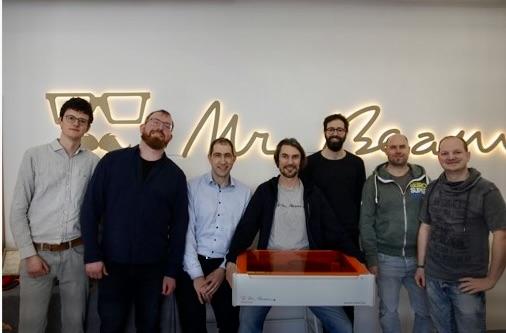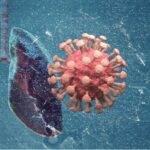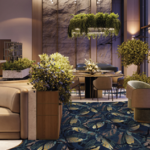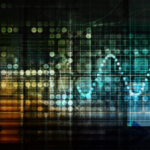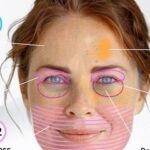The development of different technologies for the sustainability and environmental protection of the planet is a must nowadays. The depletion of natural resources and the need to protect what remains have brought technological innovations into our lives. In particular, the largest event in Europe, the Rome Chamber of Commerce, will hold its 11th edition in October. Every year, the organizers of Maker Faire Rome (MFR), the Rome Chamber of Commerce, provide dissemination and business opportunities for technology developers and the general public. “Maker Faire promotes the exchange of ideas and the evolution of technologies, showcasing prototypes that can help change the world,” says Alessandro Ranellucci, content manager of the event.
Bronte, a Sicilian city known for its pistachios, A drone-type pollen blower to respond to weather changes and promote fertilizationBronte is a volcanic area (next to Mount Etna), so tractors can’t get there. The best part is that it was invented by students from a local high school. “With this prototype we can increase pistachio production by 24%,” says Mauricio Palacerete, one of the inventors and one of the many “makers” waiting for investors to market their inventions at the fair.
solar panel Experiments are underway. Some are flexible, adapting to uneven surfaces (caravans, boats, golf carts, etc.), while others are equipped with sensors that move like sunflowers in search of light. Wind turbines innovate by curving the tips of their blades, “introducing a double rotation to increase energy production by 20%”, explains inventor Giorgio Palamara. The goal is to produce energy without emitting greenhouse gases that cause climate change. Thus, geoenergy driven by artificial intelligence (AI) is now in vogue, and at MFR it is represented by the Biosphera Genesis, an energetically self-sufficient living unit.
recycling Students from the Sapienza University of Rome have developed an intelligent waste container that can collect and dispose of all kinds of waste together. The system inside recognises whether the waste is organic, plastic, paper, glass etc. and separates it. It couldn’t be simpler.
to learn Braille At the Rome Fair, European Institute of Technology students Katerina Koleva and Magda Zukowska unveiled a system called “Brailly,” which combines buttons, haptic vibrations and sound into a palm-sized cube. Carbon Fiber Prostheses A commemorative gift was presented to Keita Sato, who won a medal at the Rio Paralympics.
A dance performance by dancers wearing his prosthetic leg at the fair. technology artCertainly, art has fascinated many with technology, or perhaps technology is fascinated by many people.
Artist.
For example, Fabio Viola worked as an archaeologist in Rome. Video Game DesignerHe said video games “can have therapeutic properties,” and that his games take place in “real cultural environments” like museums, where what happens “is always collective.”
“Originality and ingenuity”
Daniel Rosselló from Barcelona and Ángel Cabello from Zaragoza participated in the fair. Musicians use unique gestures to create sound effectsCreated in collaboration with Catalina Soto, Cabello presents a DIY calculator with symbolic mathematics and an easily customizable program.Replica of Ramses II’s mummy made from corn and kombucha husks Information on the European monuments of the QR, signed by La Sapienza University
Code and Virtual Reality by Estonian School Students, AI interactive hologramand Sidereus, a program that provides cultural activities for NASA astronauts.
video game It will go a long way to raising awareness about the care that the planet needs. Nintendo’s technology will be used to recycle household waste, teaching young people the need to distinguish between different container colors. At the same time, manufacturers will be able to monitor the plant kingdom, developing apps that warn of insects before they become pests, for example, and Predictive Irrigationmoreover, AI-enabled robots They are working on precision agriculture, which uses data to optimize production. Grape harvesting is taking place at the fair.
Home gardening
At MFR, we see numerous proposals for home gardens, grown at home or in desert areas, in habitats that meet our growing needs with minimal water consumption, applications to check the nutritional value of food, fruit growers making chips and purees from unmarketable fruit fragments, olive oil producers making compost from crushed olive residues, cookie makers using cricket flour, and high school students inventing a material made from mushrooms that will replace the plastics used in the manufacture of countless products.
Drones have become the guardians of everything. Magnetic Resonance TechnologyIt detects whether there are aquifers, archaeological remains or minerals underground. Daniela Tamburrino presents a prototype called Hydrohunter for this purpose. Other technological developments aim to extinguish fires and prevent fatalities caused by fires, such as the Aircore Firedap robot. earthquakeSuch as Lifeshell, an open-source model for building a special wooden table for evacuation during earthquake shaking.
The excitement generated by the “little Leonardos” gathered at the MFR does not distract from the attention of the big companies that contribute to sustainability. In a pavilion entirely dedicated to sports, materials used yesterday and today are displayed, with big companies like Adidas already using recycled plastic materials in the manufacture of shoes and sportswear. Other companies were directly set up to fight waste and the pollution that comes with it. In the same sports pavilion, Doctor Bike They offer fair-goers the chance to ride a tandem bike and explain their mission: “We provide technical assistance all over the world, on the side of the road or at home,” says Elisa Lombardi. In Italy, with Ciclo Riciclo they recover and restore bikes, and with Aspassobike they make inclusive vehicles (for carrying other people) and promote cycle tourism.
Technology that makes life easier Inclusion: Everyone, regardless of ability or social situation, should have equal access to the experiences the community has to offer. Thousands of startups around the world Inclusion of people with disabilitiesMany solutions will be on display at Maker Faire Rome, including: Officine ZeroA multi-factory that recycles rental scooter wheels for wheelchairs. They have a “very simple electronic board (open source of course) and very easy connections.” The inventors are convinced that these wheels are small and can fit into a wheelchair, giving the user more independence.
A place like an elevator.
Another entrepreneurial lab, We Do FabLab, is developing interactive games using virtual reality to help teenagers with disabilities learn to shop, choose products, handle money and prices, pay and get change. Makers Rita Consonni and Luciano Fumagalli are developing a “very cheap” device for the hearing impaired that amplifies the voice frequencies of people speaking to them. “If you’re in the countryside, you can charge it with a solar panel.”
Startups are the inventors of the 21st century
Startups are young companies with online headquarters, an innovative approach and great growth potential. The majority of projects exhibited at this year’s Maker Faire Rome are projects from startups that are promoted at such events and are on the way to becoming an international company.
Experts say there has been an explosion of such companies around the world, “most of them founded in China and the US and related to artificial intelligence,” acknowledges Stefan Petersson, one of many investors invited to the fair from Norwegian company Xplorico.
“Startups are signing up for almost every innovation at the moment,” Peterson said, criticizing the European Commission for not supporting startups more and “only investing in big projects.” In his opinion, the Nordic countries offer “the best ecosystem for startups to develop.” However,
He praises the business accelerators that are in place at almost every European university and argues that business and academia must always work together.
According to Corinne Rachlin, head of the Paris Campus Business Incubator, Europe also needs “industrialization projects to reduce dependency on Asia.” Innovators like her are also invited to the Maker Fair Rome to connect with start-ups. Rachlin emphasizes that artificial intelligence will increase the connection with reality in project development, leading to cleaner production.
production.”

